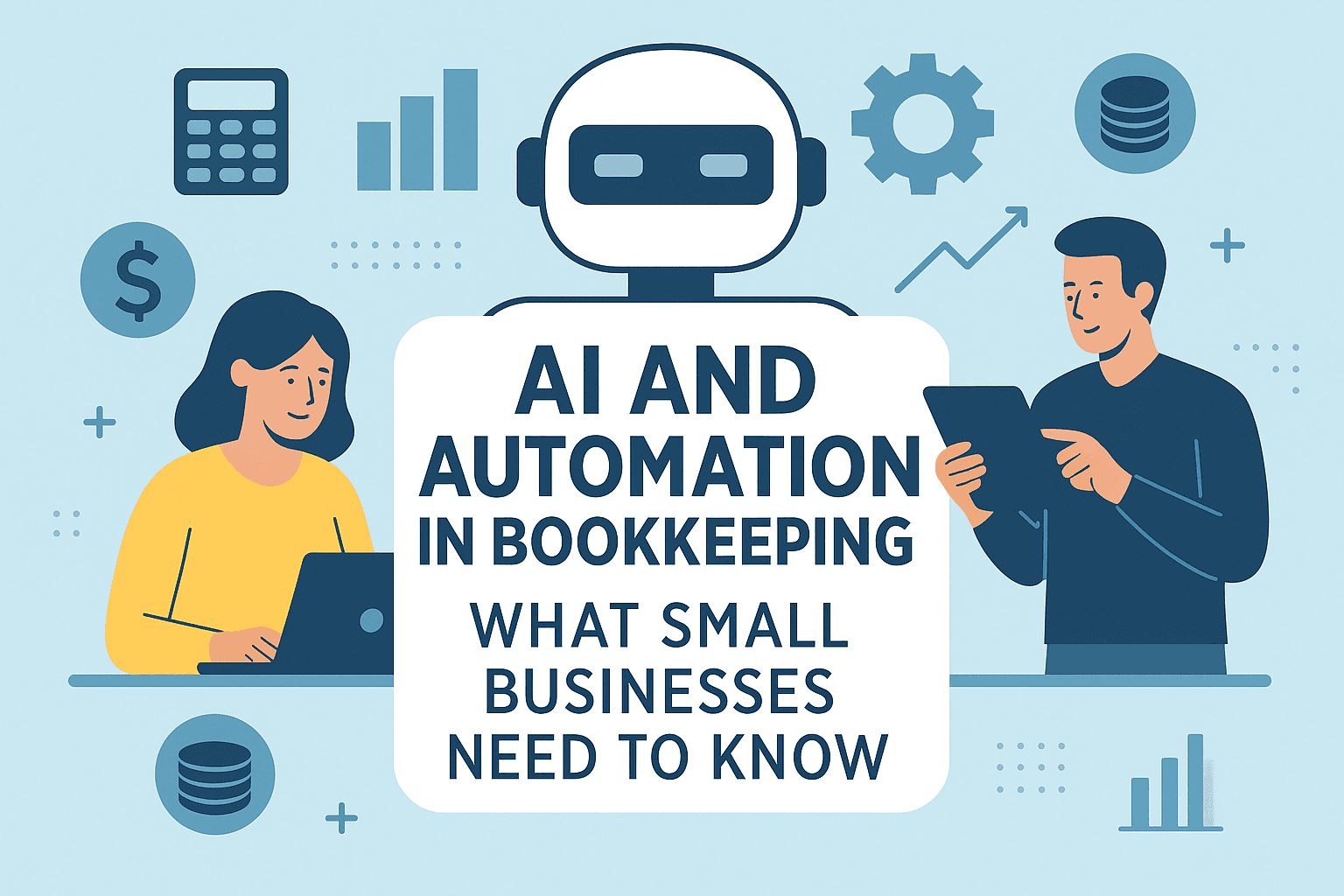Artificial intelligence (AI) and automation are no longer reserved for large corporations — they are transforming the way small businesses handle their finances too. From streamlining bookkeeping processes to reducing costly errors, these technologies are helping business owners save time, cut overheads, and focus on growth. Understanding how AI and automation fit into everyday bookkeeping can give your business a competitive edge while ensuring your accounts remain accurate and up to date.
How Automation Simplifies Everyday Bookkeeping
Automation tools are designed to handle repetitive and time-consuming financial tasks. For small businesses, this often includes functions like data entry, invoice generation, expense tracking, and bank reconciliation. By reducing the reliance on manual input, automation not only saves valuable hours but also improves accuracy. For example, instead of chasing receipts at the end of each month, automated systems can capture and record expenses in real time, ensuring nothing slips through the cracks.
The Role of AI in Smarter Financial Management
Artificial intelligence takes bookkeeping a step further by analysing financial data to provide insights and forecasts. AI-powered software can detect unusual spending patterns, highlight cash flow risks, and even predict seasonal fluctuations. This means small business owners can make better-informed decisions without having to manually sift through spreadsheets. By flagging potential errors or fraudulent transactions early, AI also strengthens financial security and compliance.
Benefits for Small Businesses
For small businesses operating on tight budgets, the advantages of AI and automation are clear. The biggest benefits include:
- Time savings: Automating manual tasks frees up time to focus on running and growing the business.
- Improved accuracy: Reducing human error ensures accounts remain reliable and compliant.
- Cost efficiency: Lower overheads and fewer mistakes can translate into real financial savings.
- Scalability: As your business grows, automated systems can easily handle higher transaction volumes without requiring additional staff.
Overcoming Common Concerns
Despite the benefits, some business owners worry about the complexity or cost of adopting AI and automation. The good news is that modern bookkeeping software is designed to be user-friendly, affordable, and scalable. Many tools offer pay-as-you-go options, making them accessible for even the smallest businesses. Additionally, working with a professional bookkeeper alongside automation ensures the technology is used effectively while still benefiting from human expertise and oversight.
Conclusion
AI and automation are reshaping bookkeeping in ways that directly benefit small businesses. By taking advantage of these tools, business owners can simplify their financial management, gain valuable insights, and reduce the risk of costly errors. Rather than replacing traditional bookkeeping, AI and automation enhance it — allowing small businesses to combine the efficiency of technology with the experience and judgement of financial professionals.




